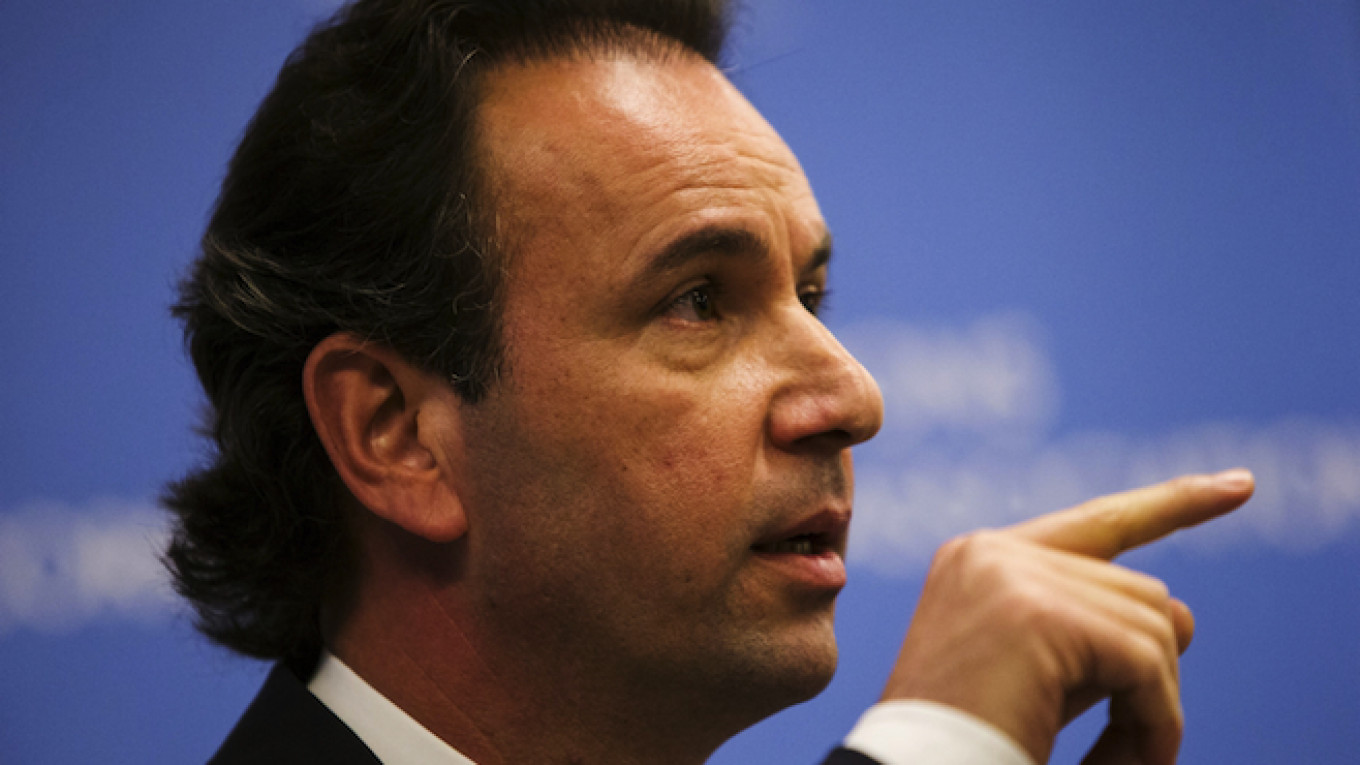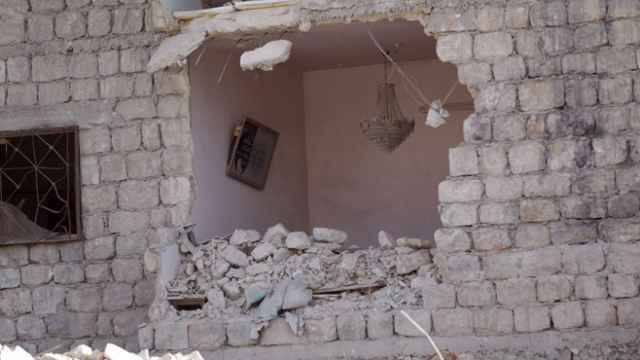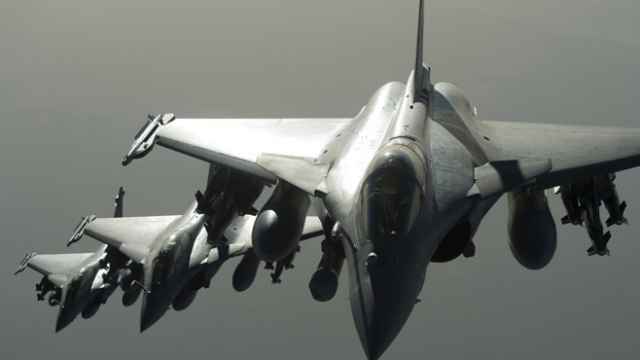Syrians living in rebel-held areas of Homs province have seen a lot of destruction in four years of war, but say the Russian air force unleashed a whole new level of devastation in airstrikes on their towns on Wednesday.
Jets flying at higher altitudes than the Syrian air force emitted no noise to alert the people below to raids reported to have killed at least 33 civilians, including children.
"We have been exposed to a wide range of weapons over the last five years, but what happened today was absolutely the most violent and ferocious, and the most comprehensive in the northern Homs countryside," said a doctor in the town of Rastan, speaking from one of the areas targeted by the jets.
"As I speak to you now the mosque minarets are warning of planes in the sky and warning that gatherings of people should disperse," he said, declining to be named out of fear for his safety.
He said the 11 people killed in the town, some 20 km (12 miles) north of the city of Homs, included three children and their father who died along with two visitors when their home was hit. "It was as if the house never was," said the doctor, who helped treat casualties from the attack.
He and others on the ground had no way of knowing for sure the jets were Russian when they struck in the morning. But their altitude, the way they manoeuvred, and later reports that Russia had started airstrikes, with Rastan among the targets, left them in little doubt.
While Russia says its raids on Wednesday targeted the Islamic State group, locals in the opposition-held area say the jihadist group has no presence in the region — echoing the assessment of a U.S. official and the Britain-based Syrian Observatory for Human Rights.
The airstrikes in support of President Bashar Assad marked a major escalation in a conflict that has killed 250,000 people, driven half of Syrians from their homes, and created the biggest refugee crisis since World War II.
"Not Seen Anything Like This"
The Homs region is of vital strategic importance to Assad's control of western Syria, linking the capital in Damascus to the coastal area including Latakia and Tartus, where Russia operates a naval facility.
Residents named a range of groups in the Homs countryside still fighting under the umbrella of the "Free Syrian Army" (FSA). FSA groups, Syrian nationalist in their ideology, have been eclipsed in much of Syria by Islamic State and rival jihadist factions such as the al Qaeda-linked Nusra Front.
"The only explanation for bombing us is that they are sending a message to say that they want all of Homs. They want to finish any presence of the opposition in Homs to secure the coast maybe," said an FSA-affiliated rebel commander in Rastan.
"Their warplanes are new and advanced so they don't need to fly low to bomb us, how can we fight them back?" he said. "We cannot shoot any of their planes down. The only solution is that fighters and civilians leave. This is what they want."
One FSA faction, the Homs Liberation Movement, announced one of its commanders had been killed in the Russian air strikes. The commander, Iyad al-Dik, was named by the doctor as one of those killed in Rastan.
Syrian state media said Russian airstrikes had been mounted on seven locations including Rastan. The Russian government said claims that it had hit targets other than Islamic State were a distortion of facts.
The Russian Defence Ministry said it had carried out about 20 flights over Syria on Wednesday, hitting eight Islamic State targets. The strikes did not hit civilian infrastructure or areas nearby, the ministry said.
Rastan is located on a highway linking the city of Homs to Hama 40 km (25 miles) further north. At least one more town on that highway, Talbisa, was also hit by the Russian jets, according to Syrian state media and people living there.
"The targeting was very accurate. This is the first time we have had such heavy intensive raids," said Fayez Obeid, a member of Talbisa's opposition-affiliated Local Coordination Committee, who spoke to Reuters from the town.
He said the targets included an office that oversees bread distribution, and a school. Reuters could not independently confirm these targets were hit.
"We have gotten used to two or three barrel bombs a day, but not this intensive bombing which has not happened before," Obeid said. "There are many amputations. We have not seen anything like this," added Abdul Rahman Jumaa, another Talbisa resident.
A Message from The Moscow Times:
Dear readers,
We are facing unprecedented challenges. Russia's Prosecutor General's Office has designated The Moscow Times as an "undesirable" organization, criminalizing our work and putting our staff at risk of prosecution. This follows our earlier unjust labeling as a "foreign agent."
These actions are direct attempts to silence independent journalism in Russia. The authorities claim our work "discredits the decisions of the Russian leadership." We see things differently: we strive to provide accurate, unbiased reporting on Russia.
We, the journalists of The Moscow Times, refuse to be silenced. But to continue our work, we need your help.
Your support, no matter how small, makes a world of difference. If you can, please support us monthly starting from just $2. It's quick to set up, and every contribution makes a significant impact.
By supporting The Moscow Times, you're defending open, independent journalism in the face of repression. Thank you for standing with us.
Remind me later.






